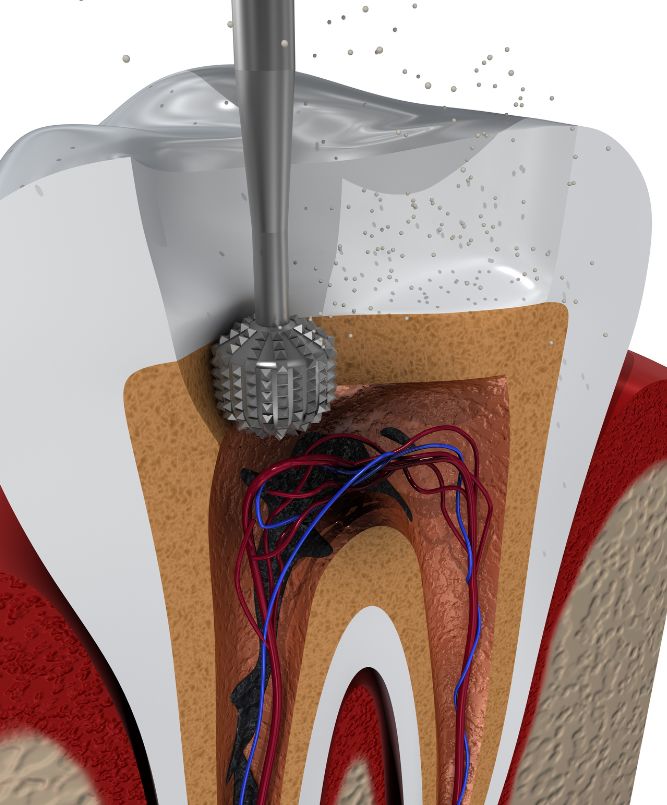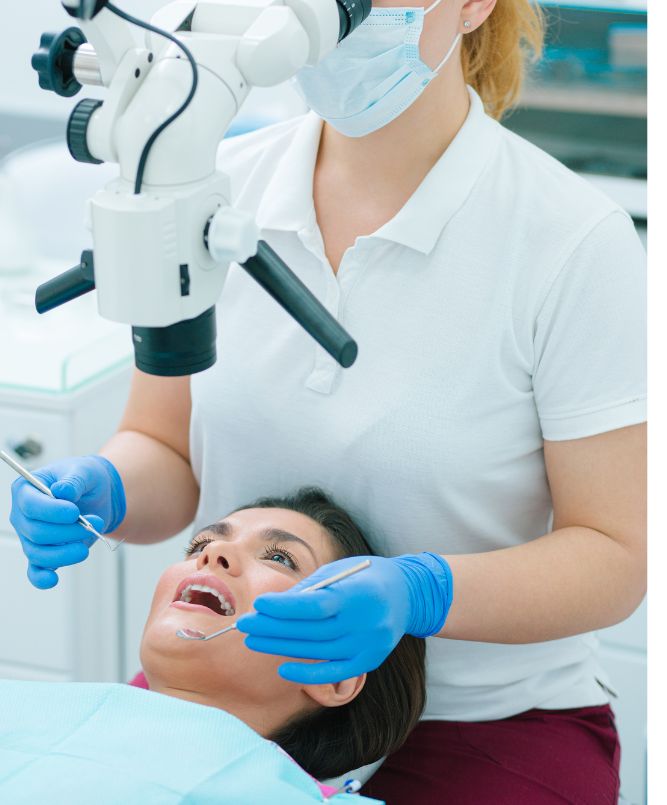Emergency Root Canal Therapy North Bergen & Jersey City
Experiencing severe toothache could signal the need for urgent root canal therapy. This critical treatment is recommended for teeth that are either infected or damaged. Postponing this procedure can escalate the problem, potentially leading to the loss of the tooth and the spread of infection. In some severe cases, an untreated tooth infection might lead to sepsis, a serious and possibly fatal blood infection.
To prevent such severe outcomes, your dental care provider might suggest:
Undergoing emergency root canal therapy, or endodontics, which aims to save the tooth while eliminating pain.
Due to the complex nature of root canal treatments, it’s essential to seek a dentist who specializes in endodontics and has the expertise required for such detailed work.
Contacting an emergency endodontic specialist promptly can greatly increase the chances of preserving your tooth.
Don’t wait for the pain to become unbearable. Seeking immediate care from a qualified endodontist can save your tooth and safeguard your health at Ararat Dental.
In the course of a check-up, we’re able to inform the patient whether this treatment is the optimal solution for their dental health issues. Nonetheless, there are indicators you can observe at home, such as:
- Persistent pulsating toothache
- Tooth discomfort along with sore gums
- Presence of a dental abscess or noticeable swelling in the gum area
- Discomfort while consuming food or beverages
- Sensitivity or pain upon touching the tooth
- Discoloration of the tooth to shades of grey or black
Should you notice any of these symptoms, it’s crucial to contact Ararat Dental without delay to arrange for a consultation.
Root Canal Therapy involves the extraction of nerves from the inner part of a tooth.
Contrary to common belief, which suggests it’s highly painful, this treatment primarily aims to alleviate pain.
Commonly known as a Root Canal, the correct term for this procedure is Endodontic Therapy.
While prices for Root Canal Therapy can differ, it typically offers a cost-effective alternative to tooth removal and subsequent replacement with an implant or bridge.
For Emergency Root Canal calls are answered from 9:30 am to 6 pm, Monday to Saturday after hours it goes to voicemail. But patients can reach Dr. Anahid Youssoufian directly anytime with the phone number listed on the voicemail.
Emergency root canal treatment: what are the 3 stages?
Phase 1: Initial Cleanup – Beginning the Battle Against Infection
Upon experiencing intense tooth pain or noticing an abscess, a patient seeks help at a dental office, indicating possible pulp infection.
A thorough examination of the affected tooth is conducted through various diagnostic tests, including tapping, feeling, temperature sensitivity checks, and radiographs.
Upon confirming the need for root canal therapy, we discuss the procedure details and costs involved.
Choosing to proceed with the treatment, the first phase, known as Initial Cleanup, commences.
The tooth is anesthetized, and a rubber dam is applied to isolate the tooth, preventing saliva contamination and securing tiny dental tools from being ingested.
An opening is made in the crown of the tooth to access and meticulously clean the root canal with fine instruments.
The canal is disinfected with germicidal solutions to eradicate bacteria.
Antimicrobial medication is placed inside the canal, sealed with a provisional restoration until the next phase, which involves further cleaning, begins.
Post-phase 1, some discomfort may linger for a day, yet significant pain and inflammation typically subside.


Phase 2: Detailed Cleaning and Medication Application
Following the initial cleanup, patients typically return after 1-2 weeks. Occasionally, the first two phases of Root Canal Therapy may be executed in one visit, contingent on prior assessment.
This phase focuses on an exhaustive cleaning to remove any remaining microbial presence within the root canals.
Precise measurements and radiographs are taken to ensure the canals are fully cleaned and prepared for filling.
Phase 3: Filling the Canals
Once the area is deemed free of infection and discomfort, the final phase, Filling the Canals, is ready to begin.
The procedure involves reapplying the rubber dam, sterilizing the tooth canal, drying it, and then filling the canals with Gutta Percha, a type of rubber material, to seal them. The material is warmed to ensure a snug fit within the canal.
Depending on the subsequent treatment plan, either a temporary or permanent restoration is placed over the filled canals to complete the therapy.

